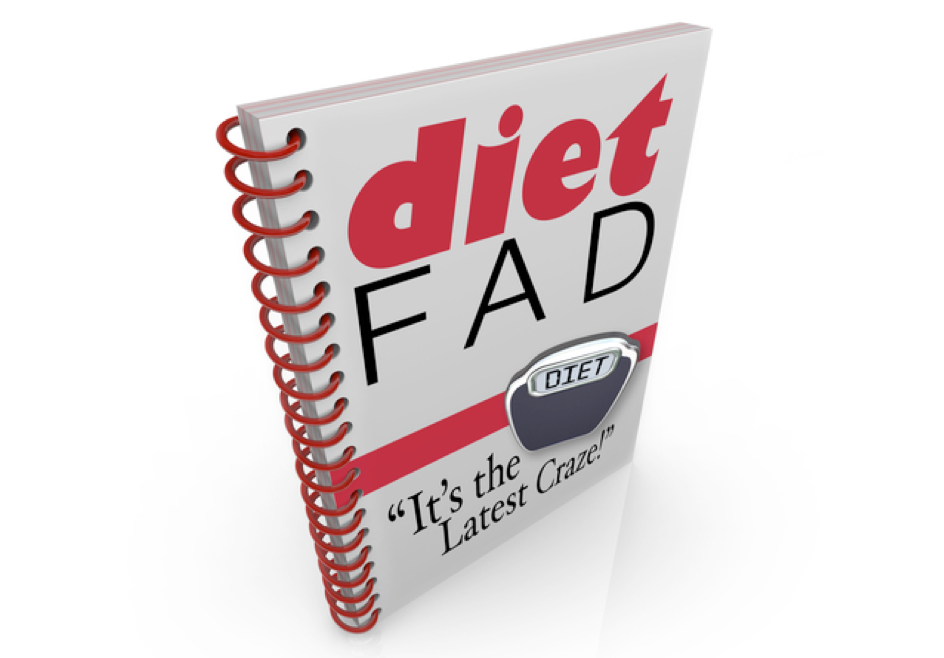How To Spot A Fad Diet
Fad di·et (fad dī’ĕt) A nutritional regimen, generally of an extreme nature,…

Fad di·et (fad dī’ĕt)
A nutritional regimen, generally of an extreme nature, intended to produce results more quickly than a traditional diet-exercise combination; often of a dubious nature. Medical Dictionary for the Health Professions and Nursing © Farlex 2012.
I once watched a documentary in which someone stated that the weight loss industry does not want you to lose weight, because your losing weight puts them out of business. They were absolutely right! How many times have you (or someone you know) gone on a restrictive diet, lost weight only to regain it soon after resuming normal eating habits?
Perhaps you know of someone who invested in special supplements and herbs or complicated gadgets that were supposed to magically melt the fat while they sat on the couch eating chin-chin. The results of their promised weight loss were short-lived and within weeks of losing weight, they were ready to purchase the next concoction for a slimmer waistline.
With the amount of nutrition misinformation readily available through the media, internet, friends and family, it is important that you are able to distinguish the real science from the junk science. Here are a few ways to spot fad diets:
They promise that you will lose weight quickly.
Science tells us that when we lose more than ½ kg – 1 kg ( (1-2 pounds) of weight per week, we are more likely to lose bone, muscle and water with a small amount of fat. The goal should be to lose fat while maintaining bone mass and building muscle (which actually helps speed up fat loss). This takes time and is a slow(er), gradual process. Take your time and lose weight slowly for better health and sustained weight loss duration.
They advise you to only eat unrestricted amounts of one food item or group of foods.
Diets that allow you to eat unlimited amounts of one food group or restrict you to eating a select few items are not only boring and difficult to follow, but also extremely unhealthy. A varied diet ensures that you get a wide variety of healthy nutrients and eliminating a whole food group or only eating certain foods can result in severe nutritional deficiencies. Stay on course by including a wide variety of foods in your diet.
They mandate specific food combination.
There is no evidence that combining certain foods or eating foods at specific times of day will help with weight loss. Eating the “wrong” combinations of food doesn’t cause them to turn to fat immediately or to produce toxins in your intestines, as some plans claim. All foods can fit as part of a healthy eating plan.
They tell you that there is no need to exercise.
The key to great health not only lies in what you eat but also how you treat your body. In addition to changing eating habits, you must change your lifestyle and increase the amount of exercise you get. In fact, numerous studies recommend that we engage in at least 150 minutes of moderate to vigorous intensity exercise every week to not only lose weight but also to keep diseases like diabetes, high blood pressure and heart disease away. In addition, an active lifestyle helps keep the waistline in check.
If you are looking to lose weight and keep it off, make the commitment to a lifestyle overhaul in how you eat and the behaviours that you engage in. Stay away from the fad diets that keep popping up and choose, instead, to lose forever.
Here’s to your health!
Need help jump starting a healthy living routine? Join our FREE 30-Day Body Reboot Challenge to get fit, firm, energized and radiant glow!
